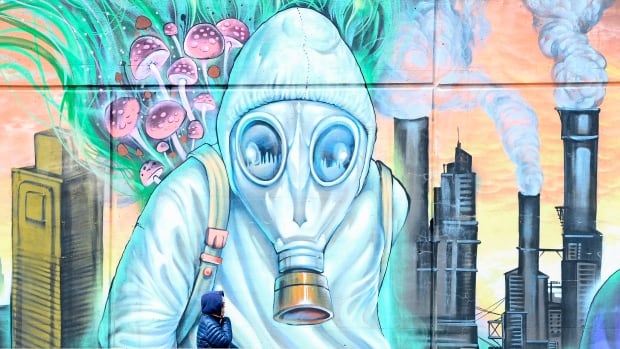Canada’s environmental watchdog released another reality check Thursday, warning that the country has just six years to cut the majority of its emissions to meet its climate goals.
“Achieving the 2030 target will require the largest emissions reductions over the next six years,” says a new report from Canada’s Environment and Sustainable Development Commissioner.
Thursday’s report acknowledges progress has been made in certain areas, but says more needs to happen and faster.
Federal Environment Commissioner Jerry DeMarco said he remains hopeful that Canada can meet its 2030 climate goals.
“It’s still possible, but the challenge is now even more difficult because we only have six years left to essentially make 20 or 30 years’ worth of cuts,” DeMarco said. “But it’s still too early to give up. We owe it to our children to keep trying.”
Watch | Canadian environmental watchdog urges people not to lose hope
Environment Commissioner Jerry DeMarco said Thursday that the federal government’s “painfully slow” progress in meeting climate goals “is no reason to just throw up our hands and say we can’t get it done.”
Since 2005, Canada’s emissions have fallen by 7.1 per cent, but the report says it is still a long way from the at least 40 per cent reduction required by 2030.
In other words, Canada has achieved less than 20 per cent of the goal it set, and still has six years left to reach it.
The report looked at 20 climate initiatives undertaken by the federal government and found “some progress” had been made. The audit found that nearly half of these measures, such as regulating methane in oil and gas, are in the right direction.
However, most measures faced significant barriers to implementation. The audit pointed to delays in setting oil and gas pollution caps, among other issues. For example, it was only on Monday that Ottawa released draft regulations on emissions caps. It had been three years since it was first announced.
Final regulations are not expected to be released until late next spring.
The audit appears to have acknowledged that the Trudeau government is not the only one to blame. As with previous reports, Thursday’s report suggested that successive Liberal and Conservative governments agree on Canada’s failure to significantly reduce emissions.
“Canada remains the worst performing G7 member state since 1990 and 2005,” the report says in its most scathing sentence.
The report also accused provincial governments of not playing their legitimate role in helping Canada reduce emissions.
“Reducing greenhouse gas emissions requires efforts from governments at all levels,” the report says.
It added that most of the measures considered “faced multi-jurisdictional challenges in their development and implementation.”
The political reaction to the report was not very kind to the Liberal Party.
“The Liberals consistently give us failing grades in every report on climate change. They’re failing Canadians,” said NDP climate change and environment critic Laurel Collins.
Environment Minister Stephen Guilbeault issued a statement in response to the report, noting that he does not dispute that the government is on track to meet its interim 2026 climate targets.
“(Our) plan is working. Canada is on track to meet its 2026 goal under the Canada Net-Zero Emissions Accountability Act.” Guilbeault said. “While the economy is operating at full capacity, emissions are falling.”

